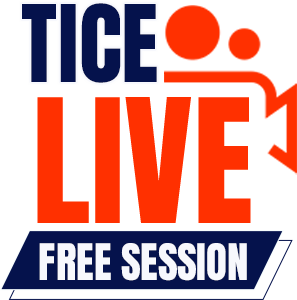
Posted On: January 27, 2025
The Ultimate Guide to Using Best SEO Tools for Comprehensive Website Optimization
Search Engine Optimization (SEO) is the backbone of digital success, ensuring your website remains competitive in an increasingly crowded online space. To achieve better visibility and higher rankings, mastering on-page website optimization is essential—and this is where the role of best SEO tools becomes indispensable. These tools empower businesses, marketers, and SEO professionals to fine-tune their website content, analyze performance, and ensure compliance with search engine guidelines.
This comprehensive guide will walk you through everything you need to know about leveraging professional SEO tools for on-page optimization, their importance, and their use in a strategic content improvement framework. Whether you're an aspiring marketer or a professional seeking to upskill through the best digital marketing courses, this guide has got you covered.
What Are SEO Tools?
SEO tools are specialized software that facilitate the optimization of a website to improve its visibility on search engines. They are designed to provide insights into website performance, keyword analysis, on-page issues, and competitor research. With top SEO tools, businesses can identify areas that need improvement and implement data-backed strategies to boost their rankings.
Here are some key benefits of using the best SEO tools for on-page optimization:
- Analyze site performance and fix errors.
- Perform keyword research to target high-traffic terms.
- Optimize meta tags, headers, and images for better search visibility.
- Monitor performance metrics like organic traffic and bounce rates.
If you're just beginning your SEO journey, you can enroll in a digital marketing course in Kolkata or access a digital marketing course with placement to solidify your understanding of SEO concepts and tools.
Why On-Page Optimization is Crucial
On-page SEO refers to the practice of optimizing individual pages of your website to make them search-engine friendly. Unlike off-page SEO, which involves external factors like backlinks, on-page SEO focuses on the website's content, structure, and code base. Tools such as Google Search Console, SEMrush, Ahrefs, and Screaming Frog are some of the professional SEO tools that help perform on-page optimizations systematically.
Key Factors in Effective On-Page Optimization
Understanding the following elements will help you understand about the best seo tools and reasons why actually SEO is important for your business, effectively for improved on-page optimization and better rankings.
Keyword Research and Placement
Effective on-page SEO begins with robust keyword research. Using professional SEO tools like SEMrush and Google Keyword Planner enables you to identify high-performing keywords relevant to your niche. For instance, if your goal is to rank for terms such as "best SEO tools," "professional SEO tools," or "digital marketing course offline," incorporate these keywords strategically throughout your content. Optimize headings, subheadings, metadata, and the body text to reflect these terms naturally, enhancing your content's relevance to user queries.
Content Quality
Creating high-quality, engaging, and valuable content is paramount for both users and search engines. Your content should directly address user intent, answering key questions and providing actionable insights. For instance, if your audience is searching for "what are SEO tools" or "top SEO tools," your content should deliver an in-depth explanation and showcase the advantages of these tools. Additionally, blending keywords like "best digital marketing courses," "digital marketing course in Kolkata," and "digital marketing course with placement" seamlessly within your content ensures visibility without compromising readability.
Meta Tags and Headings
Compelling meta titles and descriptions are critical components of on-page optimization. Tools like Yoast SEO can help refine your meta tags to include focus keywords such as "Best SEO Tools for On-Page Optimization" while ensuring they remain engaging and to the point. Similarly, use keyword-rich headings to structure your content effectively, assisting both search engines and readers in understanding the context of your page.
Internal Linking
A robust internal linking strategy strengthens your website’s architecture and improves navigation. By linking pages with anchor texts like "digital marketing offline course" or "best SEO tools," you enhance your site's usability and encourage search engine bots to crawl deeper into your site. This practice also distributes link equity, contributing to better overall ranking performance.
Page Speed Optimization
Page speed plays a pivotal role in user experience and SEO rankings. Google prioritizes fast-loading websites, making it essential to evaluate and enhance your website’s performance using tools like PageSpeed Insights. Faster websites not only improve SEO but also reduce bounce rates, particularly for keywords such as "best digital marketing courses" where competition is high.
Mobile-First Design
Given the surge in mobile users, optimizing your website for mobile devices is no longer optional—it's essential. Adopting a mobile-first approach ensures your site is accessible and user-friendly on all devices. A program like a digital marketing offline course can provide valuable training on responsive web design, equipping marketers with the skills needed to create seamless mobile experiences.
Top SEO Tools for Comprehensive On-Page Optimization
Below is a closer look at some of the best SEO tools that professionals use to optimize their websites:
1. SEMrush
SEMrush is one of the best SEO tools platforms designed to empower marketers and businesses in achieving online success. Renowned for its competitor analysis capabilities, SEMrush allows users to monitor rivals' strategies in keywords, content, and backlinks. Its keyword tracking feature helps identify high-performing and relevant keywords for your niche, while the content optimization toolkit ensures your pages are perfectly aligned with search intent. Additionally, SEMrush's technical SEO tools diagnose critical issues such as crawl errors or slow site speed, providing actionable recommendations to enhance overall on-page performance.
2. Ahrefs
Ahrefs is an indispensable tool in the SEO arsenal, particularly lauded for its expertise in backlink analysis. This platform helps you uncover the strongest link-building opportunities by profiling your domain’s backlink strength against competitors. With its extensive site audit features, Ahrefs highlights weaknesses in your website's infrastructure, such as broken links or low-quality pages, and pinpoints areas for improvement. Its keyword research functionality is equally robust, making it easier to discover untapped content topics and rankable terms that drive more organic traffic.
3. Google Search Console
Offered free by Google, Search Console is a must-have tool for identifying critical aspects of your website's search performance. It allows marketers to monitor organic search traffic, uncover which queries lead to clicks, and evaluate individual page performance. Beyond metrics, Google Search Console provides alerts about indexing issues, mobile usability concerns, or problematic structured data. By focusing on these reported issues, webmasters can ensure that their websites adhere to Google's best practices for search rankings and user experience.
4. Screaming Frog
Screaming Frog is a highly specialized crawling tool that delivers deep insights for resolving technical SEO challenges. With its ability to analyze websites for broken links, redirect loops, and duplicate content, this tool ensures optimal website functionality. It also identifies issues like missing title tags, meta descriptions, or excessive page load times, facilitating strategic fixes. Screaming Frog is particularly valued for its capacity to manage large-scale websites, making complex audits manageable and thorough.
5. Yoast SEO
For WordPress users, Yoast SEO is an essential plugin that simplifies on-page SEO optimization. This tool scrutinizes content for readability and keyword usage, ensuring your posts align with SEO standards. With its integrated checklist, Yoast SEO aids in optimizing title tags, meta descriptions, and alt text, as well as improving internal linking structures. It also offers built-in recommendations for fine-tuning SEO elements on your pages, helping you maintain consistent optimization efforts across your site.
By leveraging these tools effectively as part of your SEO strategy, you can ensure your website is well-positioned to achieve better rankings, attract more visitors, and deliver an outstanding user experience. Choose the tools that best align with your needs and start optimizing confidently.
Bonus Tips for Effective SEO
Maximizing the use of the best SEO tools requires consistent practice and experimentation. Here are some key bonus tips:
- Keep track of algorithm updates and modify your strategy accordingly.
- Enroll in relevant courses, such as a digital marketing course with placement, to gain hands-on training.
- Combine on-page SEO with robust content marketing strategies.
FAQs
1. What are SEO tools used for?
SEO tools are used to analyze and optimize websites to improve rankings and visibility on search engines. They assist in keyword research, performance tracking, and identifying structural issues.
2. Which are the best SEO tools for beginners?
Some of the top SEO tools for beginners include Google Search Console, Ubersuggest, and Yoast SEO, which offer user-friendly interfaces and actionable insights.
3. Can I learn SEO through a digital marketing course?
Yes, many institutions offer the best digital marketing courses online and offline, covering SEO thoroughly. For instance, if you're in Kolkata, you can avail a digital marketing offline course to learn from experts.
4. How do I choose the right SEO tool for my business?
Consider factors like business size, technical capabilities, and goals. For small businesses, free tools like Google Search Console may suffice. Larger enterprises might benefit more from advanced professional SEO tools like Ahrefs or SEMrush.
5. Is on-page SEO alone sufficient for rankings?
While on-page SEO is critical, a well-rounded strategy also requires off-page SEO efforts like link-building and social media marketing.
Final Thoughts
Mastering on-page website optimization is a crucial step toward building a robust online presence, and using the best SEO tools ensures you're maximizing your efforts. Whether you're new to SEO or an experienced marketer, tools like SEMrush, Google Search Console, and Yoast SEO can make all the difference in refining your strategy. Pairing these insights with continuous learning—perhaps through a digital marketing course in Kolkata —means you're well-equipped for long-term success.
Tags
Latest Posts
-

A Step-by-Step Guide to Becoming a Social Media Manager in 2025
-

ROAS in Digital Marketing — What Is It and Why It Matters for Your Business?
-

Why Networking is Important for Students: Unlocking Opportunities for Internships and Jobs
-

What is Lead Generation? A Complete Guide for Marketers
-

Psychology of Colors in Branding – Choosing the Right Palette
Similar Posts
-

A Step-by-Step Guide to Becoming a Social Media Manager in 2025
-

Why Networking is Important for Students: Unlocking Opportunities for Internships and Jobs
-

Psychology of Colors in Branding – Choosing the Right Palette
-

What is Remarketing and Why Your Business Needs It in 2025
-

How to Create a Content Calendar: A Step-by-Step Guide for Beginners



